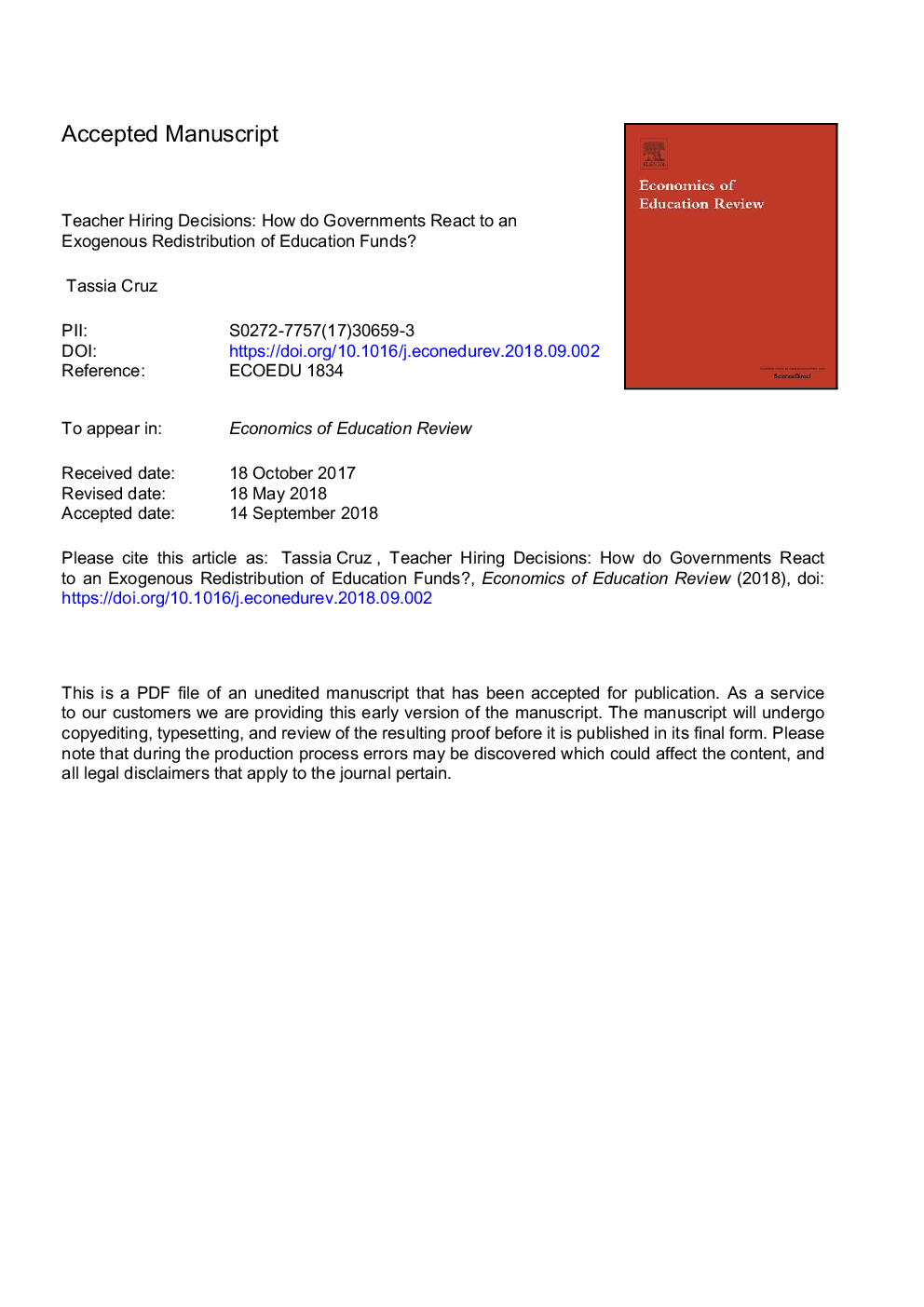| Article ID | Journal | Published Year | Pages | File Type |
|---|---|---|---|---|
| 11021214 | Economics of Education Review | 2018 | 51 Pages |
Abstract
This paper examines the teacher hiring decisions of Brazilian local governments in response to an education funding reform, called FUNDEF. The reform redistributed funding across municipalities and determined a minimum spending on teachers. While several papers have already examined the overall effect of the FUNDEF reform, this is the first analysis of the effects of the municipalities' relative positions after the redistribution on hiring decisions. Using a simulated difference-in-differences model, I find that FUNDEF only led to salary increases in municipalities that benefited from the redistribution. Contrary to its initial goal, municipalities harmed by the redistribution responded by increasing hiring. Additionally, employing a simulated instrumental-variable model, I find that the amount received in FUNDEF transfers did not lead to pay increases. Models of government-union interaction are used to explain these results, suggesting that the bargaining power is the main driver of teacher pay.
Related Topics
Social Sciences and Humanities
Economics, Econometrics and Finance
Economics and Econometrics
Authors
Tassia Cruz,
